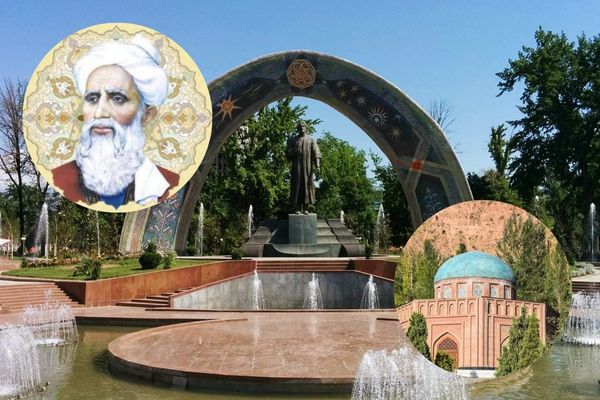Persian Poetry," was a pioneering Persian poet born in the village of Rudak, near Samarqand (in modern-day Tajikistan). He is considered one of the earliest and most influential figures in Persian literature, credited with playing a vital role in shaping the tradition of Persian poetry during the early Islamic period.
Life and Career
Rudaki displayed extraordinary talent from a young age, excelling in music, literature, and poetry. According to historical accounts, he was a skilled harpist and possessed a beautiful voice. His literary brilliance earned him a place at the court of the Samanid ruler Nasr II (r. 914–943 CE) in Bukhara, the cultural and intellectual hub of the time. As a court poet, Rudaki composed numerous works that praised the king, celebrated courtly life, and explored philosophical and moral themes.
Literary Contributions
Rudaki is credited with transitioning Persian poetry from the older Pahlavi tradition into a new era of written Persian literature under the influence of Islam. His verses, written in Dari Persian, were accessible and eloquent, laying the foundation for the development of Persian as a literary language.
Though much of Rudaki’s extensive oeuvre has been lost over the centuries, some of his poetry has survived. His works include qasidas (odes), ghazals (lyrical poems), and rubaiyat (quatrains), with themes ranging from love and nature to wisdom and morality. Among his most famous surviving pieces is a nostalgic ode to the joys of nature, beginning with:
"The scent of the soil of Musalla strikes me,
Memory of a dear friend delights me."
Decline and Legacy
Rudaki’s life took a tragic turn when he fell out of favor with the court. Historical accounts suggest he lost his patronage and died in poverty around 941 CE. Despite this, his influence endured, and later Persian poets such as Ferdowsi, Hafez, and Rumi drew inspiration from his works.
Legacy
Rudaki is celebrated as the first major poet of the Persian language. His mastery of poetic form and expression influenced the evolution of Persian literature and established the foundations for the rich poetic tradition that followed. His contributions are honored in modern Tajikistan, where he is regarded as a national hero, and his birthplace, Rudak, remains a symbol of Persian literary heritage. Monuments and festivals continue to celebrate his enduring legacy.
Sokhanvar information
Published on Dec. 25, 2024, 2:47 p.m. by @admin
- Name: Abu Abdollah Jafar ibn Mohammad Rudaki
- Persian Name:: ابوعبدالله جعفر بن محمد بن حکیم بن عبدالرحمن بن آدم الرودکی
- Alias: Rudaki
- Comments: 0
- Views: 784
Works
According to Asadi Tusi, the divan (collection of short poems) of Rudaki consisted of more than 180,000 verses, but most of it has been lost.
A few complete poems have also survived, most notably a qasida (eulogy or ode) consisting of almost 100 verses quoted in the anonymous Tarikh-i Sistan.
Rudaki's best known work is his versification of the Kalila wa-Dimna, a collection of Indian fables.
Books
- No books added yet.

